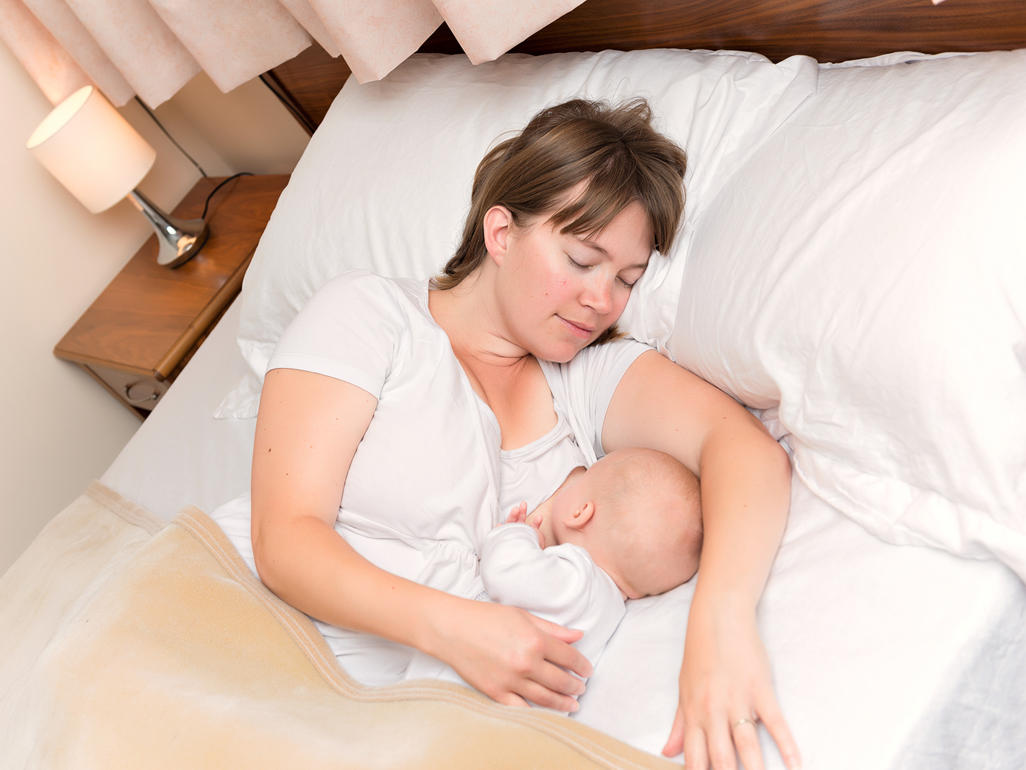Co-sleeping with Babies

While western culture discourages it, studies have shown that co-sleeping with a
breastfeeding infant promotes bonding, regulates the mother and baby’s sleep patterns,
plays a role in helping the mother to become more responsive to her baby’s cues, and
gives both the mother and baby needed rest. The co-sleeping environment also assists
mothers in the continuation of breastfeeding on demand, an important step in maintaining
the mother’s milk supply.
There are many ways of co-sleeping. Some mothers keep their babies in bed with them
all the time. Other mothers set up the crib or bassinet in the mother’s room; their babies
are brought to the mother’s bed when they wake. Other mothers sleep with their babies on
a mattress in the baby’s room.
This is a personal decision for every mother. If you decide to co-sleep with your infant,
there are some guidelines for doing it effectively and safely.
Parents should not sleep with their babies if they are smokers or have ingested alcohol or
drugs. Do not co-sleep if you drink alcohol or medications that make you sleepy, take
drugs, or smoke. Co-sleep only on beds, not on couches or recliners. Bedding should be
tight fitting to the mattress and the mattress should be tight fitting to the headboard of the
bed. There should not be any loose pillows or soft blankets near the baby’s face. There
should not be any space between the bed and adjoining wall where the baby could roll
and become trapped. And of course, the baby should not be placed on its stomach.
There are as many options as there are parents and babies. As babies grow and changes
their sleep patterns, families often respond by changing sleeping spaces. The only right
choice is what works to give the whole family as much rest as possible.
